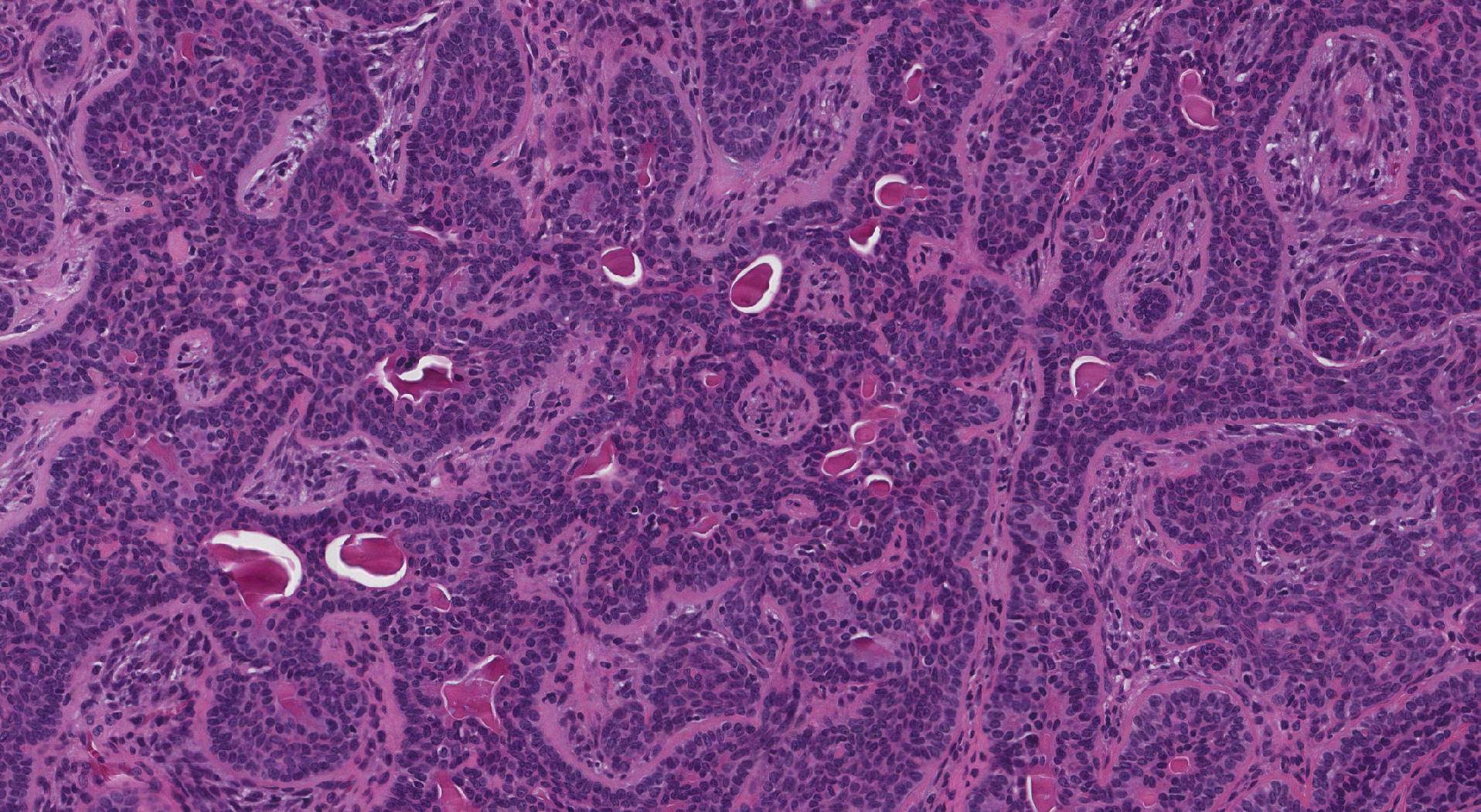by Jason Wasserman MD PhD FRCPC
June 28, 2024
Basal cell adenoma is a benign (non-cancerous) tumour that arises from the salivary glands. It is a rare type of salivary gland tumour that typically originates from the parotid gland, the largest of the salivary glands in front of the ear. However, the tumour can arise from any of the major salivary glands or the minor salivary glands located throughout the oral cavity. This tumour is characterized by basaloid cells, which resemble the normal basal cells found in the salivary glands.

What causes basal cell adenoma?
Most basal cell adenomas are sporadic, meaning the tumour develops without known genetic or environmental risk factors. However, the risk of developing this tumour is higher in people with familial/multiple cylindromatosis syndrome.
What are the symptoms of basal cell adenoma?
Basal cell adenomas are usually slow-growing and may not cause symptoms initially. However, as the tumour enlarges, it can present with various symptoms, including:
- A painless lump or mass in the area of the parotid gland or other salivary glands.
- Swelling or enlargement in the affected area.
- Possible discomfort or pain if the tumour compresses nearby nerves or tissues.
- Facial asymmetry due to the growth of the tumour.
- Difficulty swallowing or a feeling of fullness in the throat if the tumour is located in the minor salivary glands within the oral cavity.
How is the diagnosis of basal cell adenoma made?
The diagnosis of basal cell adenoma can be made after a small sample of the tumour is removed in either a core needle biopsy or fine needle aspiration biopsy (FNAB). It can also be made after the entire tumour is removed in an excision or resection. The tissue removed is then sent to a pathologist for examination under the microscope.
Microscopic features of this tumour
When examined under a microscope, most basal cell adenomas look dark blue because the tumour is made up predominantly of basal cells with a large nucleus (the part of the cell that holds the genetic material) relative to the overall size of the cell. A bright pink ‘basement-membrane type’ material is often seen between groups of tumour cells. The tumour may be described as well-circumscribed and encapsulated, which means there is a clear border between it and the surrounding normal salivary gland tissue.

About this article
Doctors wrote this article to help you read and understand your pathology report. Contact us if you have questions about this article or your pathology report. For a complete introduction to your pathology report, read this article.



